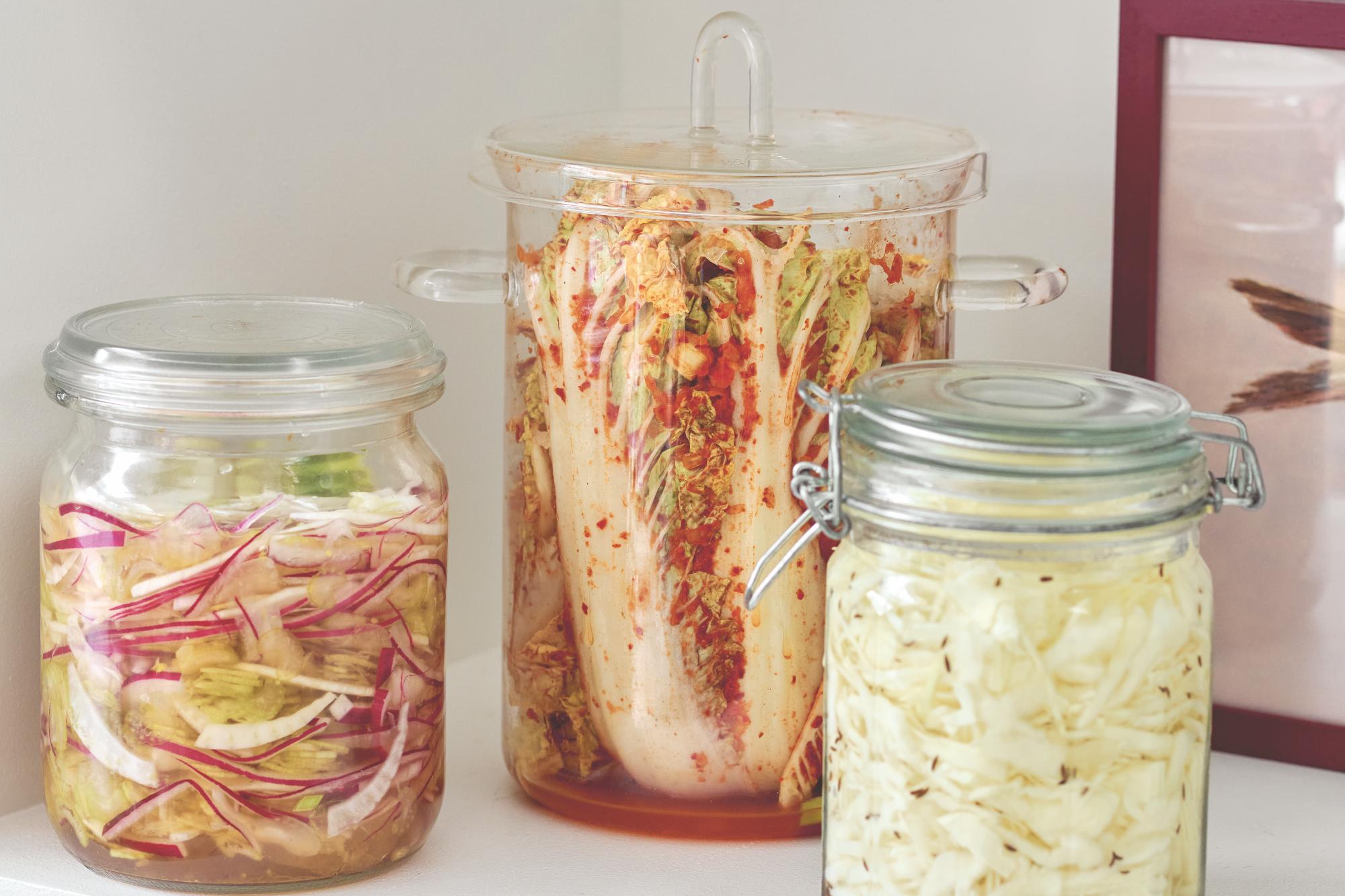
“Traditionally sauerkraut is fermented slowly at lowish temperatures – two to four weeks at around 15–20°C – to give enough time for the sourness to properly develop,” explains scientist and gut health expert Tim Spector, whose new book is called Ferment.
“With a pH of 3.5, sauerkraut is around seven times more sour than kimchi, its spicier cousin.
Red cabbage takes longer to ferment than white cabbage, and both work faster if you add another vegetable (like a small carrot or two) that contains a range of accessible sugars for the microbes.”

Ingredients:
(Makes 1 large jar)
1 white or red cabbage
1–2 carrots (optional)
1tbsp caraway seeds (or juniper berries)
Sea salt
Method:
1. Trim the base of the cabbage and peel away the outer leaves; set these aside for use later. Cut the cabbage into quarters and use a mandoline, food processor, coarse grater or sharp knife to finely shred the cabbage and carrot (if using).
2. Tip the cabbage into a large bowl, add the caraway seeds and make a note of the total weight. Add 2 per cent salt of this total weight, so if the total weight is 600g, you will need 12g salt.
3. Using your hands, massage the salt really well into the shredded cabbage for a couple of minutes until it starts to soften. Cover the bowl with a clean cloth or plate and set aside for at least 30 minutes and up to three hours until the cabbage is very soft and has released water.
4. Scoop the cabbage and any resulting liquid into a clean one-to-two-litre jar and really pack it down hard so that the shredded cabbage is submerged under the briny liquid and you have a clear 5cm gap between the cabbage and the top of the jar. Cover the top of the cabbage with the reserved outer leaves and place a weight on top. Close the lid but leave it slightly loose – if the jar is sealed tight it runs the risk of exploding!
5. Place the jar on a plate in a dark cool cupboard out of direct sunlight and leave for two to three days for fermentation to start. Burp the jar daily to release any collected gas. After seven days the sauerkraut should be fermenting nicely so it can now be stored in the fridge. Use within one to two months, depending on how soft you like it.

Ferment: The Life-Changing Power of Microbes by Tim Spector is published in hardback by Jonathan Cape, priced £25. Available now.







